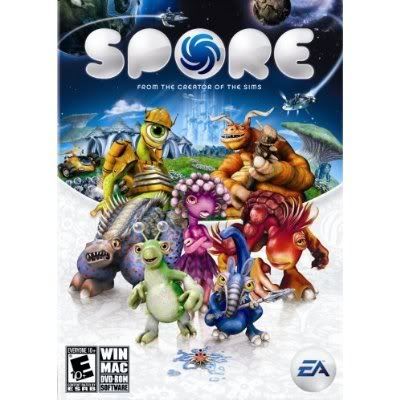However, when it was launched a few days ago, customers had a curious reaction to its DRM copy-protection method: they trashed their review scores in high-profile sites like Amazon.
While Spore is still selling ok, it's isn't very good for a developer or distributor to have a game showing with a rating of 1 star in 5, is it?
The issue, as always, is the copy protection method: you can only install the game 3 times. After that, you'll need to contact Electronic Arts and kindly ask them for a new activation code - which they may very well refuse, after treating you as a suspect and jerking you around for a while.
This is a game you *paid for*, but you're treated like you just rented it.
The protection is well known to gamers, it's the hideous SecuROM that acts more like a virus, and can affect your computer performance and reliability.
And proving that DRM is useless, Spore was leaked on the Internet several days before its launch date, free from those pesky protections.
Why they keep using these techniques?
"That's like saying just because your house has been robbed, why do you bother putting a lock on your door?" responded Jeff Brown, EA's vice-president of corporate communications.Sure... But why do they keep putting a lock *and* a retinal scanner *and* a fingerprint reader in *our* front door, while they leave the back door open for anyone deciding not to pay for the game?
I only ask that I can play the game I paid for without worrying about my computer integrity and without being treated like a criminal.
Last game I bought for the PC was completely DRM free and it was quite successful (ET:Quake Wars) and there are many other examples.
I guess I'll just have to stay clear of EA's games...
Fortunately, some smaller developers are listening and adjusting accordingly.
via [FT]








No comments:
Post a Comment